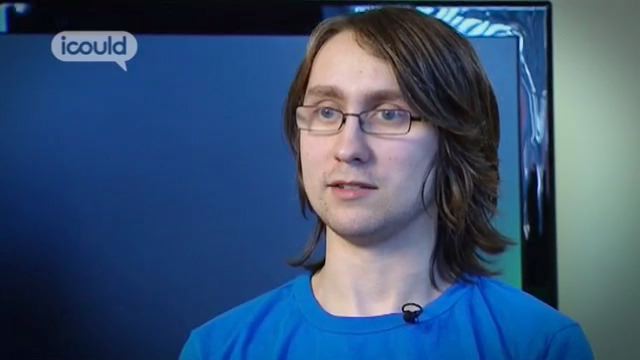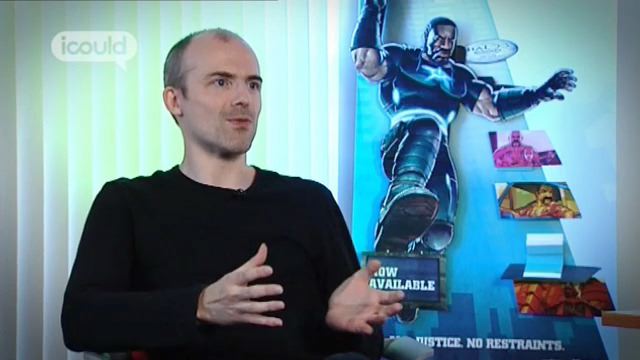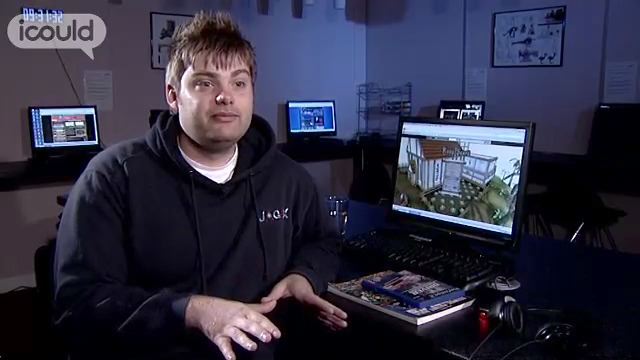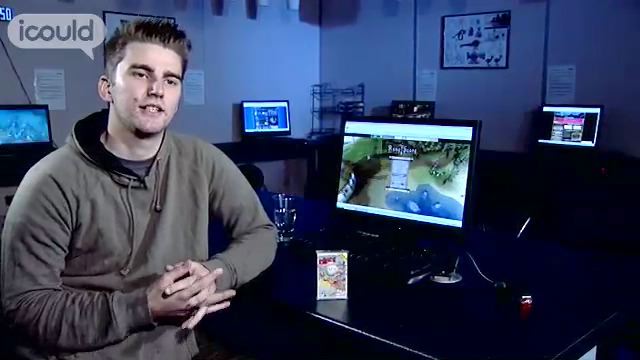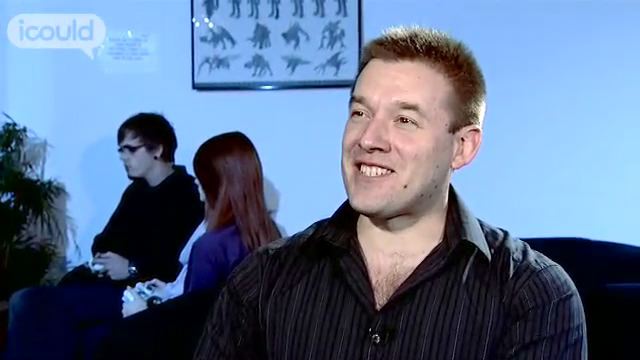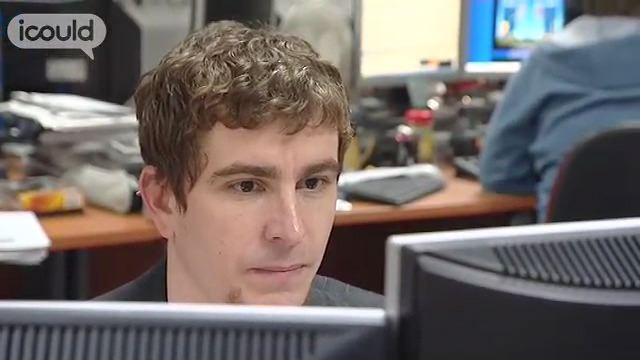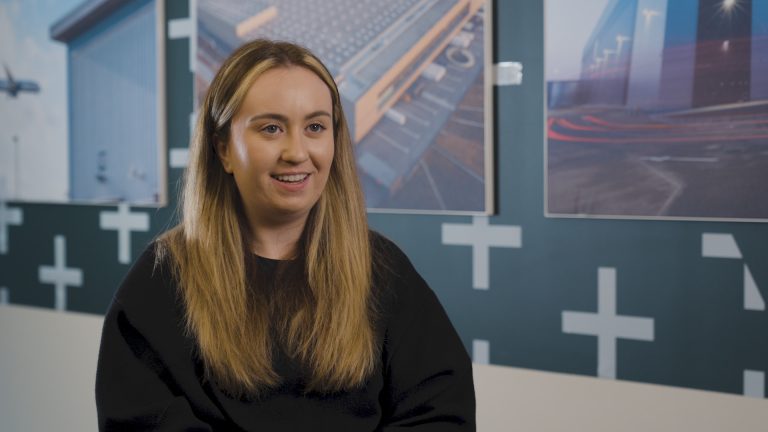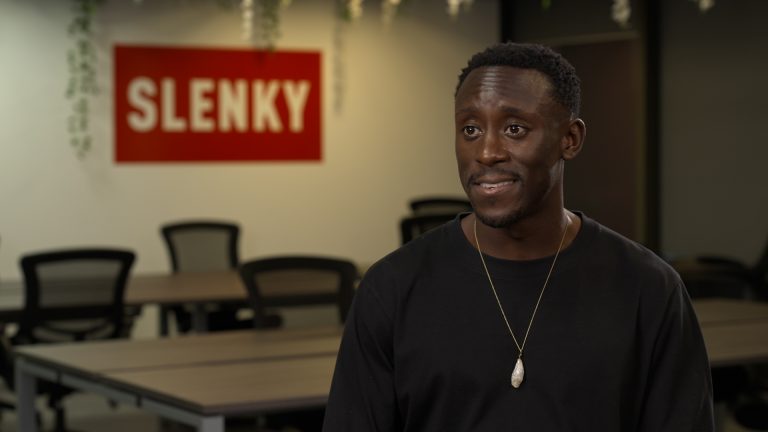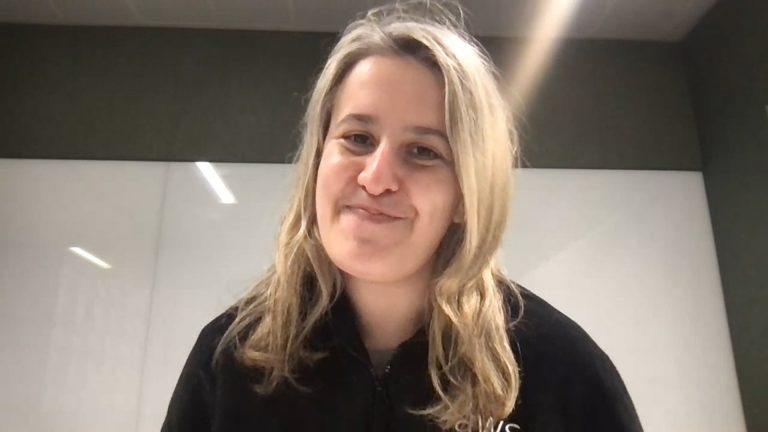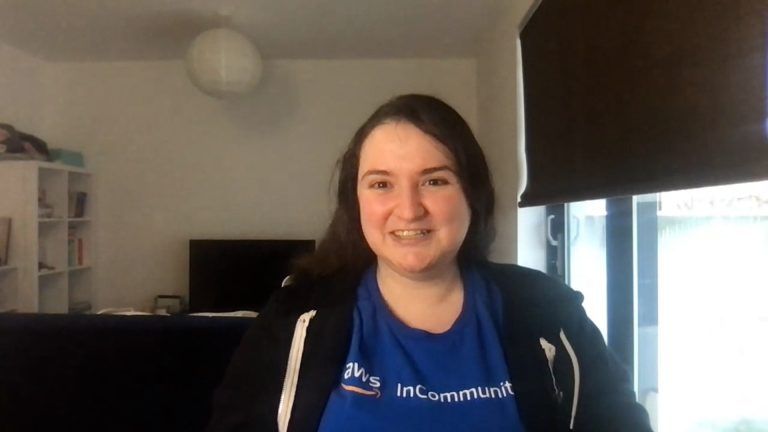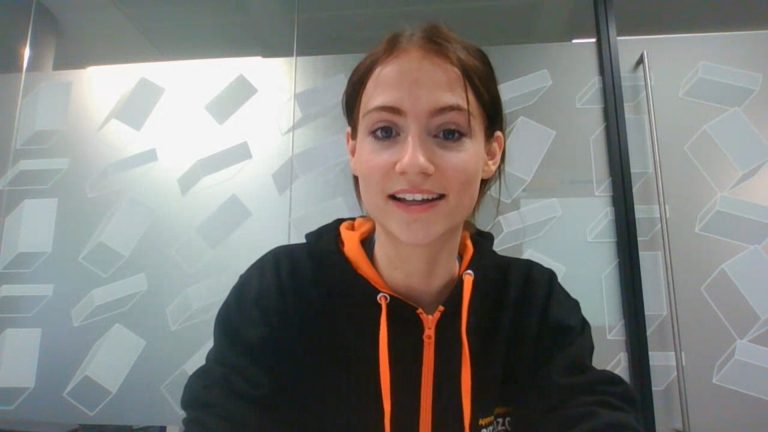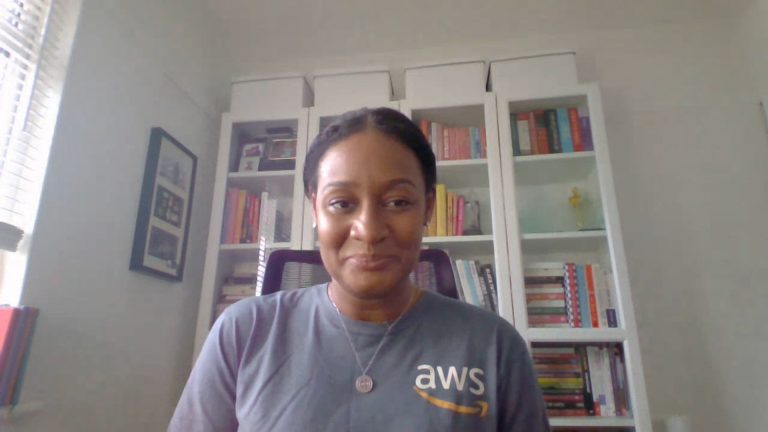Games Developer
Jagex
Tom R
00.01 My name’s Tom R, I work as a Games developer for Jagex. I work for a part of Jagex called Funnel which does online browser based games, so they’re quite small and so we can have one person designing and implementing a game from start to finish. The release of my last game was the total high point for me. It was the fruition of a years work, this was a football game a top download one called Kickabout. We spent a year working on this thing, worrying about whether it would be popular at all and worrying whether we had wasted a lot of resources building this thing. And it came out and it went down really well, and its, its still being played and we’re working on more developments for it now. It’s hugely exciting.
00.36 Programming has always been my hobby and, it is something of an obsession as well, I think it came from when I was, I think I was about ten years old and I was reading one of the demon headmaster books and inside it, it had a just a little piece of basic code. I think I asked my dad what it was, and he like showed me, tapped that into a computer and you can make it do stuff. And all I did was write games for a good couple of years I think after that. My dad did some programming in his work, he was an engineer, but he would often write the computer systems which controlled large engineering projects. He was always playing with computers and swearing at computers. And also it was him that sort of guided my first fledgling steps in making games, and he looked at my, at the first couple of games that I’d written and didn’t say they were as bad as they were, which was very generous of him.
01.28 I did mostly maths during school, and that’s where I excelled. I also did lots of computing. I must have known from about the age of fourteen that I wanted to do computer science at university. Largely because I was already quite good at it and I was hoping that I could just, you know, do well at university doing it. When I first applied to Cambridge I didn’t know if I had any hope at all and when I got in I was hugely thrilled, hugely excited, but by the time I got to Cambridge I was, I was pretty scared. You know, very quickly there was a huge amount of work, there was a huge mountain to climb in terms of getting to the end of this degree. I think I grew up a lot from it. I think it was the most beneficial thing I’ve ever done and it took like years and years of experience and compressed it down to a very concentrated burst of learning.
02.12 I was hired at a recruitment fair. I was wandering through looking at lots of different companies based in Cambridge. A lot of the companies were doing really boring stuff, lots of, lots of tech, lots of low level stuff. And then I found Jagex in the corner saying oh we make games do you want to come and work for us. I applied originally to work on web systems here. But I think in my application I talked so much about all the games I’d written during my hobby, my hobby career, that they said I think you should join the games department.
02.37 I was told basically when I arrived at Jagex, can you please write a puzzle game involving zombies and I was given the title Zombie Dawn and that was it really. And so I was left for five months to worry about whether what I was making would be any good and it was a sort of strategy game where you controlled zombies to take over the world. I remember one of the most thrilling moments writing my first game was when the graphics artist came up to me and said ‘so we’ve got some basic graphics for you, what do you think of these’ and they showed me these beautiful, coming to life of my ideas. Suddenly I was in a professionally made game. I wasn’t a kid in his bedroom writing really poor quality games.
03.12 I always wanted to learn to dance actually, I really enjoy music I love going to gigs, I love playing music. There’s a thriving dance scene in Cambridge. There’s a lot of, the one I do is 1940’s jazz style dance, the lindy hop. We’re very lucky here in Cambridge I think, there’s a lot of live bands who are quite willing to play for dance societies so virtually every week you can go along and see some live music, they’ll have a little dance class and then there’s a whole gig of very forties style swing dancing with skirts flaring and people in braces and things, it looks great.
03.43 It’s not Charlie and the Chocolate Factory working for a games company. Making games is still work, but work can be fun and it is hugely important to try and find something you are just satisfied doing because I never get out of bed dreading what’s going to happen today, I’m always kind of excited about what’s going to go on. Often I dream about it as well, I try not to do that to much, otherwise, yeah, can be dangerous.
Tom R is a Games developer for a part of Jagex called Funnel. He says, “Making games is still work, but work can be fun and it is hugely important to try and find something you are just satisfied doing because I never get out of bed dreading what’s going to happen today, I’m always kind of excited about what’s going to go on”.
More information about Programmers and software development professionals
The UK average salary is £29,813
There are 37.5 hours in the average working week
The UK workforce is 47% female and 53% male
Future employment
- Examines existing software and determines requirements for new/modified systems in the light of business needs;
- Undertakes feasibility study to design software solutions;
- Writes and codes individual programs according to specifications;
- Develops user interfaces;
- Tests and corrects software programs;
- Writes code for specialist programming for computer games, (for example, artificial intelligence, 3D engine development);
- Implements and evaluates the software;
- Plans and maintains database structures;
- Writes operational documentation and provides subsequent support and training for users.
